Go Lean Commentary
Thanks to the COVID-19 Global Pandemic, the tourism product in the Caribbean “is shot”. We must now look at an alternative. Any alternative?!
What else do we have to offer?
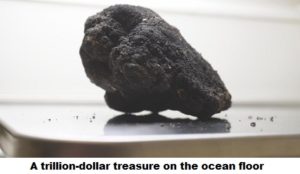 How about minerals?
How about minerals?
Let’s get serious and “dig deep” as we take a hard look into these prospects.
Get it?! Minerals … dig … prospects, as in Gold Prospectors. 🙂
The movement behind the 2013 book Go Lean…Caribbean engages in a Teaching Series every month to address issues germane to Caribbean life-culture, plus to message how to reform and transform the Caribbean economic engines. This month, due to COVID-19 lockdowns, this writer is quarantined in Nassau, Bahamas.
Here, during the peak of the Winter Tourist season. The problem though, is that there are NO Tourists this year.
The cupboards are bare!
Heaven help us… if we plan to build a future economy on this foundation.
The Go Lean movement wants to consider other types of economic activities to the Caribbean landscape; we urgently want to investigate the alternatives and there is a lot of talk about Mineral Extraction.
How viable is it?
Firstly, we need to accept, that despite the present impasse, the region’s economic driver is still tourism, or will be again after this pandemic is assuaged. Tourism and Mineral Extractions are incompatible activities.
Picture a spill from an oil well damaging the beaches at a resort.
Thus, there is the need for cautions in any considerations we make. Our challenge will be to embrace the commerce of Mineral Extraction for the positives, while avoiding the negatives.
This commentary posits that there are opportunities for the Caribbean to better explore Mineral Extractions, on land and in the seas. This commentary is the first, 1-of-6, for the January 2021 Teaching Series on Mineral Extractions 101. The full series is as follows:
- Mineral Extraction 101 – Raw Materials ==> Finished Goods
- Mineral Extraction 101 – Lessons from History: Jamaica’s Bauxite
- Mineral Extraction 101 – Industrial Reboot – Modern factories – Small footprints
- Mineral Extraction 101 – Commerce of the Seas – Encore
- Mineral Extraction 101 – Restoration after Extraction – Cool Sites
- Mineral Extraction 101 – Sovereign Wealth Fund – Not the Panacea

With the quest to investigate the ecosystems of Mineral Extraction, we have to take a “Full 360 View” and look at the past, present and the future.
Question: How far back do we need to look-view-consider? Answer: All the way to 1776.
See this quotation from a previous commentary (June 17, 2015) from the Go Lean movement:
1776 was a very good year…
… not just because the 13 original British colonies declared their independence as the United States of America, but also the publication of the landmark book on Economic Principles, An Inquiry into the Nature and Causes of the Wealth of Nations by Adam Smith, the 18th century Scottish political economics pioneer. The publication is cited as a reference source in the book Go Lean…Caribbean – a roadmap for the introduction and implementation of Caribbean Union Trade Federation (CU) to elevate the economic, security and governing engines of the Caribbean region. A relevant quote from the Go Lean book follows (Page 67):
… usually abbreviated as “The Wealth of Nations“, this book is considered the first modern work of economics, and [Smith] is thusly cited as the “father of modern economics”, even today, and among the most influential thinkers in the field of economics. Through reflection over the economics at the beginning of the Industrial Revolution the book touches upon broad topics as the division of labor, productivity and free markets.
Smith attacked most forms of government interference in the economic process, including tariffs, arguing that these create inefficiency and high prices in the long run. It is believed that this theory, laissez-faire economic philosophy, influenced government legislation in later years.
Smith advocated a government that was active in sectors other than the economy. He advocated public education for poor adults, a judiciary, and a standing army—institutional systems not directly profitable for private industries.
The “Invisible Hand” is a frequently referenced theme from Smith’s book. He refers to “the support of domestic industry” and contrasts that support with the importation of goods. Neoclassical economic theory has expanded the metaphor beyond the domestic/foreign manufacture argument to encompass nearly all aspects of economics. The “invisible hand” of the market is a metaphor now to describe the self-regulating behavior of the marketplace. …
So Adam Smith’s 1776 book “The Wealth of the Nations” addresses how colonial powers were to optimize the national “Wealth”; optimizing the source extraction of minerals or raw materials and the refinement process in the host country for the Finished Goods.. A further quotation relates:
Smith notes that, curiously, interest rates in the colonies are also remarkably high ([previously], Smith described how wages in the colonies are higher than in England). Smith attributes this to the fact that, when an empire takes control of a colony, prices for a huge abundance of land and resources are extremely cheap. This allows capitalists to increase his profit, but simultaneously draws many capitalists to the colonies, increasing the wages of labour. As this is done, however, the profits of stock in the mother country rise (or at least cease to fall), as much of it has already flocked offshore. – Source: Wikipedia.
The foregoing quotations mention the principle of the Raw Materials eco-system: “importation of cheap goods from “remote” colonies … domestic manufacture”. Again, this is the overall strategy:
- Extract the Raw Materials in the Colonies
- Export it to the Empire’s Host Country
- Import it and manufacture Finish Goods in the Host Country
- Export Finish Goods to the rest of the world, including the territory for the originating raw materials.
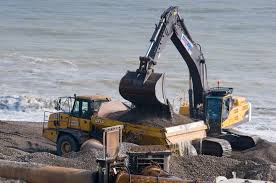
Despite the 245 years since the publication of the landmark book by Adam Smith, the valuation remains. Raw Materials are cheap; Finished Goods are more valuable; the gap between the two is the inviting profit.
For all of you seeking to prioritize Mineral Extraction as an alternative to tourism, you need to be On Alert. This is the system that you will be challenging. Consider this actuality now of the low intrinsic value of Raw Materials -vs- the Finished Goods:
- Sand ==> Cement


- Bauxite ==> Aluminum
- Iron Ore ==> Steel
- Silica ==> Glass
- Coffee Beans == Cappuccino / Macchiato
- Wheat Grain ==> Bread
- Barley Grain ==> Beer
This is Mineral Extraction 101, a consideration of the Basics of Raw Materials. Let’s explore this ecosystem further by reviewing these training VIDEO‘s for Kids:
VIDEO # 1 – Raw Materials Definition for Kids – https://youtu.be/Ai0U1b2FlVw
History Illustrated
Posted Oct 5, 2014 – Free Activities and Downloads for Kids: http://historyillustrated.org/———–
VIDEO # 2 – Manufactured Goods Definition for Kids – https://youtu.be/BtKni7haXtQ
History Illustrated
Posted Oct 6, 2014 – Free Activities and Downloads for Kids: http://historyillustrated.org/
The reality is that prices for a huge abundance of land and resources were extremely cheap 250 years ago and is still cheap down. That orthodoxy that Adam Smith reported on in 1776 remains even today. This is NOT where the money is; the money or value proposition is associated with the manufacturing of the Raw Materials to produce the Finished Goods. If we want to reboot our economic landscape, we must position ourselves on the manufacturing side, not just the Raw Materials side. There is more profit following this strategy.
Profits ==> Jobs ==> Entrepreneurial opportunities ==> Community Revitalization
We do indeed need to foster more Mineral Extractions. There are so many lessons that we can learn from the Economic History of other communities and their fostering of Raw Materials on the land and in the seas – think dredging operations.

According to the book Go Lean…Caribbean, ‘Luck is where opportunity meets preparation’ – Page 252.
Well, opportunity awaits the Caribbean … for Mineral Extractions, dredging operations and even oil exploration.
The Go Lean movement have consistently asserted that Mineral Extraction and Raw Materials – on land and sea – must be central to any industrial rebooting of the Caribbean region, despite all the drama associated with his subject. Consider this sample list of previous blog-commentaries:
| https://goleancaribbean.com/blog/?p=18578 | Missing Out on the ‘Rush’ – Encore |
| https://goleancaribbean.com/blog/?p=13155 | Industrial Reboot – Pipelines 101 |
| https://goleancaribbean.com/blog/?p=12230 | Commerce of the Seas – Extraction Realities |
| https://goleancaribbean.com/blog/?p=7384 | Oil Refineries – Strategy for Advanced Economics |
| https://goleancaribbean.com/blog/?p=5396 | ‘Significant’ oil deposit found offshore Guyana |
| https://goleancaribbean.com/blog/?p=4700 | Rare Earths: The new ‘Rush’ |
| https://goleancaribbean.com/blog/?p=3743 | Trinidad cuts 2015 budget as oil prices tumble |
| https://goleancaribbean.com/blog/?p=3213 | The fluctuations of Oil Prices – Gas is NOT Greener with Extractions |
In some tourism circles, there is the philosophy of “Leave Nothing and Take Nothing”. Where the tourists are asked to “leave nothing but footprints” and “take nothing but memories”. This is NOT true for Mineral Extractions or mining. The landscape or waterscape may be scared for all eternity, plus the actuality of water table contamination and other hazards. On land, some hills and/or mountains may be excavated and there may be extensive dredging in the seas, affecting coral reefs or surf patterns.
Recent studies of mining activities in countries around the world produced these sour assessments:
Title #1 – Kenya: Mining impact on communities’ livelihoods: A case study of Taita Taveta County, Kenya
Mining did not help some of the households, to acquire assets, even though it enhanced ability to meet their day to day needs. Mining pits, poor rehabilitation and large-scale mining have caused a loss of agricultural land resulting in reduced crop yields and poor living standards. Some established mining companies in the area did not compensate, or share their accrued revenues nor did they support development projects as was expected. Therefore, the improvement brought about by mining was not sustainable to communities’ livelihood. – Source————-
Title #2 – Appalachia, United States: Toxic Waste and Mining
In Appalachia, mining companies literally blow the tops off mountains to reach thin seams of coal. They then dump millions of tons of rubble into the streams and valleys below the mining sites. Toxic heavy metals such as cadmium, selenium, and arsenic leach into local water supplies, poisoning drinking water.This destructive practice, known as mountaintop-removal mining, sends carcinogenic toxins like silica into the air, affecting communities for miles around. Cancer rates are twice as high for people who live near mountaintop-removal sites, and the risk of heart defects in babies born to mothers who lived near these sites while pregnant is 181 percent higher than for babies in non-mining areas. It also destroys beautiful, biodiverse forests and wildlife habitat, increases the risk of flooding, and wipes out entire communities.
This practice has damaged or destroyed more than 2,000 miles of streams, and has wiped out more than 1.5 million acres of forests in Kentucky, Tennessee, Virginia, and West Virginia. – Source
————-



So if the Caribbean stakeholders finally want to reboot their industrial landscape and diversify away from tourism-only, they must accept the heavy-lifting that comes with the challenge of Mineral Extractions; it is not a “slam dunk” easy industry, and it is rarely profitable.
The valuation of cheap raw materials lingers since pre-industrial colonial days.
Learning lessons from the past, and from other societies means that we must be prepared to employ the Best Practices in regulating this industry. The heavy-lifting tasks may be too big for any one member-state alone; there is the need to collaborate, cooperate and coordinate technocratic solutions for the entire region as a whole. This is the quest of the Caribbean Union Trade Federation (CU), to bring Good Governance to the region as a whole and the for all 30 Caribbean member-states individually.
The Go Lean roadmap calls for the confederate management of an expanded Exclusive Economic Zone for the Caribbean Sea.
This is how we can explore and exploit Mineral Extractions in the Caribbean and make our homeland a better place to live, work and play. This vision is conceivable, believable and achievable. 🙂
About the Book
The book Go Lean…Caribbean serves as a roadmap for the introduction and implementation of the technocratic Caribbean Union Trade Federation (CU), for the elevation of Caribbean society – for all member-states. This CU/Go Lean roadmap has these 3 prime directives:
- Optimization of the economic engines in order to grow the regional economy to $800 Billion & create 2.2 million new jobs.
- Establishment of a security apparatus to ensure public safety and protect the resultant economic engines.
- Improve Caribbean governance to support these engines, including a separation-of-powers between the member-states and CU federal agencies.
The Go Lean book provides 370-pages of turn-by-turn instructions on “how” to adopt new community ethos, plus the strategies, tactics, implementations and advocacies to execute so as to reboot, reform and transform the societal engines of Caribbean society.
Download the free e-Book of Go Lean … Caribbean – now!
Who We Are
The movement behind the Go Lean book – a non-partisan, apolitical, religiously-neutral Community Development Foundation chartered for the purpose of empowering and re-booting economic engines – stresses that reforming and transforming the Caribbean societal engines must be a regional pursuit. This was an early motivation for the roadmap, as pronounced in the opening Declaration of Interdependence (Pages 11 – 13):
x. Whereas we are surrounded and allied to nations of larger proportions in land mass, populations, and treasuries, elements in their societies may have ill-intent in their pursuits, at the expense of the safety and security of our citizens. We must therefore appoint “new guards” to ensure our public safety and threats against our society, both domestic and foreign. …
xi. Whereas all men are entitled to the benefits of good governance in a free society, “new guards” must be enacted to dissuade the emergence of incompetence, corruption, nepotism and cronyism at the peril of the people’s best interest. The Federation must guarantee the executions of a social contract between government and the governed.
xii. Whereas the legacy in recent times in individual states may be that of ineffectual governance with no redress to higher authority, the accidence of this Federation will ensure accountability and escalation of human and civil rights of the people for good governance, justice assurances, due process and the rule of law. As such, any threats of a “failed state” status for any member state must enact emergency measures on behalf of the Federation to protect the human, civil and property rights of the citizens, residents, allies, trading partners, and visitors of the affected member state and the Federation as a whole.
xvi. Whereas security of our homeland is inextricably linked to prosperity of the homeland, the economic and security interest of the region needs to be aligned under the same governance. Since economic crimes … can imperil the functioning of the wheels of commerce for all the citizenry, the accidence of this Federation must equip the security apparatus with the tools and techniques for predictive and proactive interdictions.
Sign the petition to lean-in for this roadmap for the Caribbean Union Trade Federation.

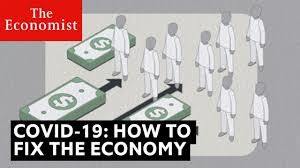 To fix the economy, we have to fix the pandemic – President-Elect Joe Biden, as a candidate in September 2020.
To fix the economy, we have to fix the pandemic – President-Elect Joe Biden, as a candidate in September 2020.
 The world is enduring the Coronavirus COVID-19 pandemic crisis; it is wreaking havoc on the world’s economic engines – $250 Billion a day in losses – and Public Health deliveries. The only hope is a vaccine, of which there are a number of them in
The world is enduring the Coronavirus COVID-19 pandemic crisis; it is wreaking havoc on the world’s economic engines – $250 Billion a day in losses – and Public Health deliveries. The only hope is a vaccine, of which there are a number of them in 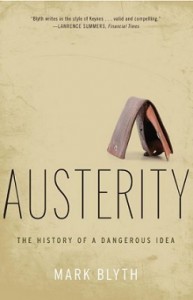 Those who advocate to remediate Caribbean economics needs to avoid a series of Economic Fallacies. …
Those who advocate to remediate Caribbean economics needs to avoid a series of Economic Fallacies. …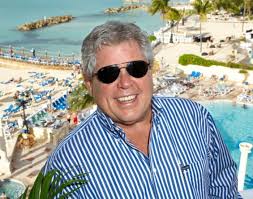 Gordon “Butch” Stewart has died. 🙁
Gordon “Butch” Stewart has died. 🙁 Butch Stewart labored to promote, provide and protect Caribbean interest all over the world. He proved to be a fine role model for the Caribbean youth to emulate. In fact, his profile was featured in the 2013 book Go Lean…Caribbean – on Page 189 – this publication serves as a roadmap for rebooting the Caribbean societal engines of economics, security and governance. See that published profile in the Appendix below.
Butch Stewart labored to promote, provide and protect Caribbean interest all over the world. He proved to be a fine role model for the Caribbean youth to emulate. In fact, his profile was featured in the 2013 book Go Lean…Caribbean – on Page 189 – this publication serves as a roadmap for rebooting the Caribbean societal engines of economics, security and governance. See that published profile in the Appendix below.
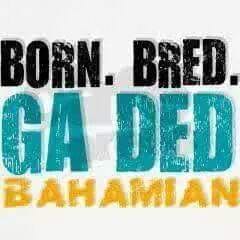

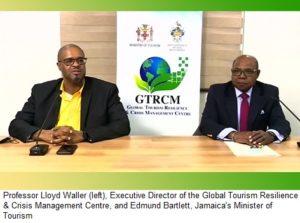 Jamaica Cares, a joint collaboration between the Global Tourism Resilience & Crisis Management Centre (GTRCMC), the Global Travel and Tourism Resilience Council, and Global Rescue, is being hailed as a first-of-its kind traveller protection and emergency services program designed to protect both visitors and the people of Jamaica.
Jamaica Cares, a joint collaboration between the Global Tourism Resilience & Crisis Management Centre (GTRCMC), the Global Travel and Tourism Resilience Council, and Global Rescue, is being hailed as a first-of-its kind traveller protection and emergency services program designed to protect both visitors and the people of Jamaica.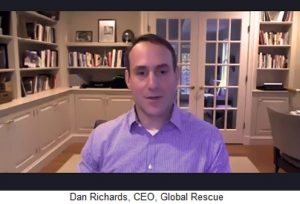

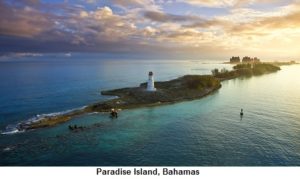
 All you parents of grown children already know this, right?
All you parents of grown children already know this, right? Inter-American Development Bank (IDB)
Inter-American Development Bank (IDB)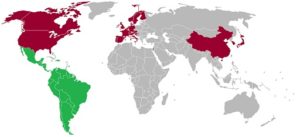

 The IDB prioritizes social inclusion and equality; productivity and innovation; and regional economic integration in its development work across Latin America and the Caribbean. In doing so, it addresses the cross-cutting issues of gender equality and diversity; climate change and environmental sustainability; and institutional capacity and the rule of law. Learn more about the
The IDB prioritizes social inclusion and equality; productivity and innovation; and regional economic integration in its development work across Latin America and the Caribbean. In doing so, it addresses the cross-cutting issues of gender equality and diversity; climate change and environmental sustainability; and institutional capacity and the rule of law. Learn more about the 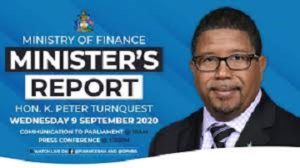
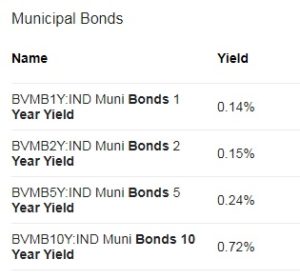

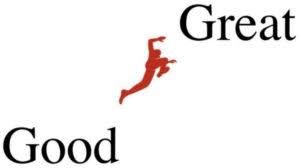 So then, perhaps the Greatness that America had – that Trump reminisced about – was only for a limited scope for people that were:
So then, perhaps the Greatness that America had – that Trump reminisced about – was only for a limited scope for people that were: The Go Lean book, serving as a roadmap for the introduction of the Caribbean Union Trade Federation (CU), asserts that Caribbean stakeholders must do the heavy-lifting to remediate our Toxic Environments, and them keep pushing forward to foster a Great Society. The purpose of the Go Lean roadmap is to optimize the economic, security and governing engines of society. The end result must be that we retain people in-country and maybe even entice the Diaspora to return. The purpose of these past entries in this month’s Teaching Series was to reinforce the foundation of Caribbean society. We must reform and transform. Yes, we can!
The Go Lean book, serving as a roadmap for the introduction of the Caribbean Union Trade Federation (CU), asserts that Caribbean stakeholders must do the heavy-lifting to remediate our Toxic Environments, and them keep pushing forward to foster a Great Society. The purpose of the Go Lean roadmap is to optimize the economic, security and governing engines of society. The end result must be that we retain people in-country and maybe even entice the Diaspora to return. The purpose of these past entries in this month’s Teaching Series was to reinforce the foundation of Caribbean society. We must reform and transform. Yes, we can!


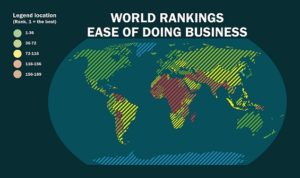 Peace and Prosperity …
Peace and Prosperity … We do not want Toxic Environments … anymore.
We do not want Toxic Environments … anymore. Doing Business 2020, a World Bank Group flagship publication, is the 17th in a series of annual studies measuring the regulations that enhance business activity and those that constrain it. Doing Business presents quantitative indicators on business regulations and the protection of property rights that can be compared across 190 economies—from Afghanistan to Zimbabwe—and over time.
Doing Business 2020, a World Bank Group flagship publication, is the 17th in a series of annual studies measuring the regulations that enhance business activity and those that constrain it. Doing Business presents quantitative indicators on business regulations and the protection of property rights that can be compared across 190 economies—from Afghanistan to Zimbabwe—and over time.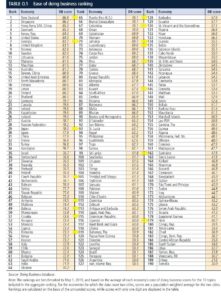

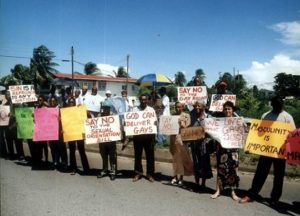
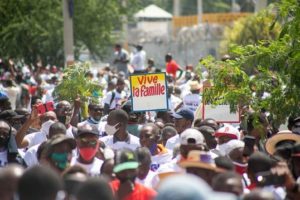
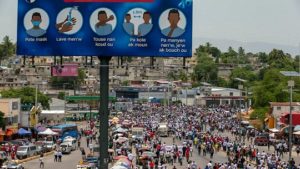
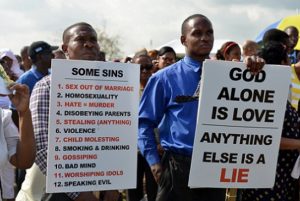
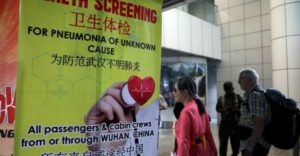
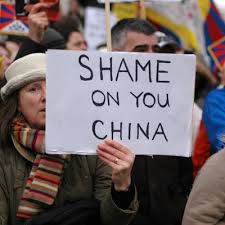
 The actuality of Intolerance is the opposite of the qualities a pluralistic society like the Caribbean needs to develop. We have a new found economic engine that we can now exploit:
The actuality of Intolerance is the opposite of the qualities a pluralistic society like the Caribbean needs to develop. We have a new found economic engine that we can now exploit: 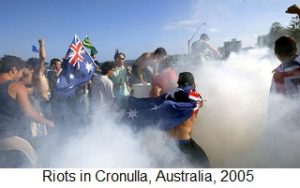

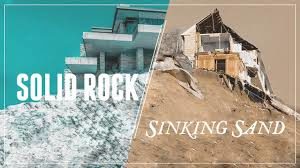 24 “Anyone who listens to my teaching and follows it is wise, like a person who builds a house on solid rock. 25 Though the rain comes in torrents and the floodwaters rise and the winds beat against that house, it won’t collapse because it is built on bedrock. 26 But anyone who hears my teaching and doesn’t obey it is foolish, like a person who builds a house on sand. 27 When the rains and floods come and the winds beat against that house, it will collapse with a mighty crash.” – The Bible re: Building on a Solid Foundation – Matthew 7:24-27 –
24 “Anyone who listens to my teaching and follows it is wise, like a person who builds a house on solid rock. 25 Though the rain comes in torrents and the floodwaters rise and the winds beat against that house, it won’t collapse because it is built on bedrock. 26 But anyone who hears my teaching and doesn’t obey it is foolish, like a person who builds a house on sand. 27 When the rains and floods come and the winds beat against that house, it will collapse with a mighty crash.” – The Bible re: Building on a Solid Foundation – Matthew 7:24-27 – 
 When the
When the  The
The  [Thoughts-feeling-speech-action] is usually the order and process for change. Change doesn’t just start with Action; a lot more goes into it. It can be likened to a factory process; there is input and there is output. While Action is the output, “Thoughts, Feelings and Speech” qualify as input.
[Thoughts-feeling-speech-action] is usually the order and process for change. Change doesn’t just start with Action; a lot more goes into it. It can be likened to a factory process; there is input and there is output. While Action is the output, “Thoughts, Feelings and Speech” qualify as input. The Washington Football Team are a professional
The Washington Football Team are a professional 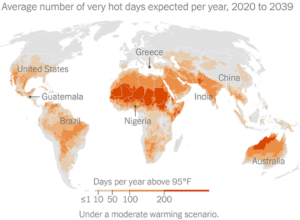 This is not true for Climate Change. Some communities are on the frontlines; some communities take all the beatings, while some other communities are unscathed.
This is not true for Climate Change. Some communities are on the frontlines; some communities take all the beatings, while some other communities are unscathed.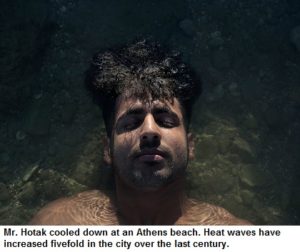 … Mr. Hotak was 16 when he left his home in the Sholgara district of Afghanistan, the only one among his 11 brothers and sisters to do so. After one failed attempt to enter Europe and two years in a refugee camp, he was granted asylum in Greece. That’s when he arrived on the rooftop refuge with a friend, in the crowded warrens of Kolonos, a working class Athens neighborhood where many migrants have settled.
… Mr. Hotak was 16 when he left his home in the Sholgara district of Afghanistan, the only one among his 11 brothers and sisters to do so. After one failed attempt to enter Europe and two years in a refugee camp, he was granted asylum in Greece. That’s when he arrived on the rooftop refuge with a friend, in the crowded warrens of Kolonos, a working class Athens neighborhood where many migrants have settled.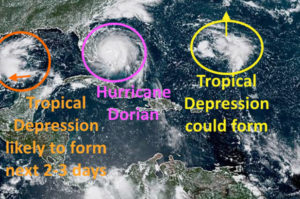 Hurricanes are worse; more frequent and more powerful. In fact for 2020, the meteorological officials have ran out of names to assign for this year’s Atlantic Hurricane season. They are now assigning the Greek alphabet as hurricane names; think Alpha, Beta, Gamma, Delta, Epsilon, etc.. Here is the actuality of the Alpha Storm here:
Hurricanes are worse; more frequent and more powerful. In fact for 2020, the meteorological officials have ran out of names to assign for this year’s Atlantic Hurricane season. They are now assigning the Greek alphabet as hurricane names; think Alpha, Beta, Gamma, Delta, Epsilon, etc.. Here is the actuality of the Alpha Storm here: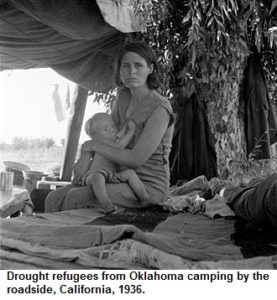 Well, the opposite is occurring; there are shortages – like precipitation, cool breezes, shady trees – and dire consequences (
Well, the opposite is occurring; there are shortages – like precipitation, cool breezes, shady trees – and dire consequences (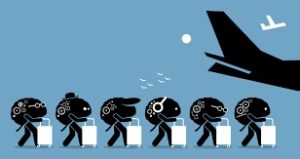 So first there was the brain drain (
So first there was the brain drain ( Our choices are that simple: prepare for Climate Change or watch our people migrate away from the homeland to foreign shores where the dire effects are lessened. While all humans are created equal, all people do not get equal treatment from … Mother Nature. Some people get more hot and wet than other people, yet they may not be able to afford the physical relief.
Our choices are that simple: prepare for Climate Change or watch our people migrate away from the homeland to foreign shores where the dire effects are lessened. While all humans are created equal, all people do not get equal treatment from … Mother Nature. Some people get more hot and wet than other people, yet they may not be able to afford the physical relief.